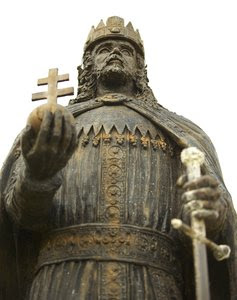Isaiah 14, Part Two: Submission in Service

Isaiah 14, Part Two: Submission in Service The broken nations of Syria, Assyria and Babylon would join themselves with Israel, content to be servants. Isaiah 14:1-2 (ESV) For the LORD will have compassion on Jacob and will again choose Israel, and will set them in their own land, and sojourners will join them and will attach themselves to the house of Jacob. And the peoples will take them and bring them to their place, and the house of Israel will possess them in the LORD's land as male and female slaves. They will take captive those who were their captors, and rule over those who oppressed them. MALE SLAVES: ebed "EH-bed" (a servant); from abad (to work, in any sense; to serve, till or enslave) FEMALE SLAVES: shipha "shif-KHAW" (a female slave, as a member of the household); from a word meaning to spread out, as a family) CAPTIVE: shaba "shaw-BAW" (to transport into captivity; imprisoned or confined) Isaiah later adds more descriptio...

